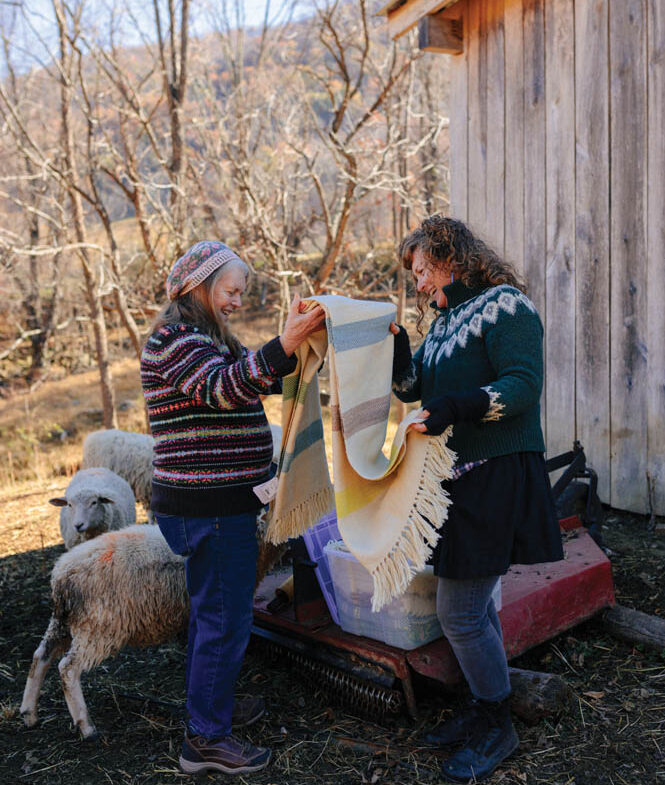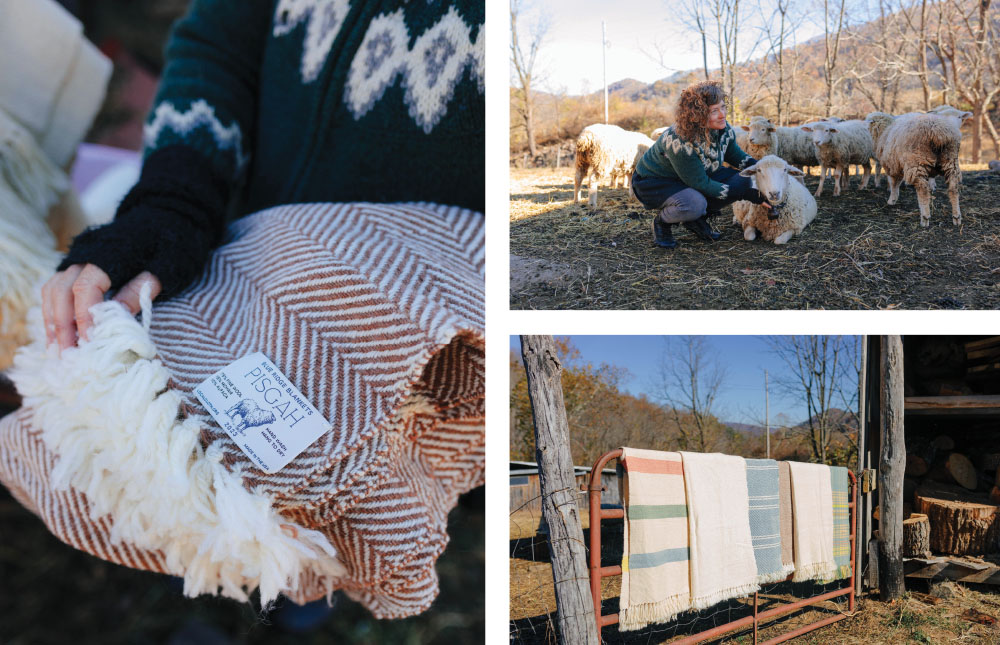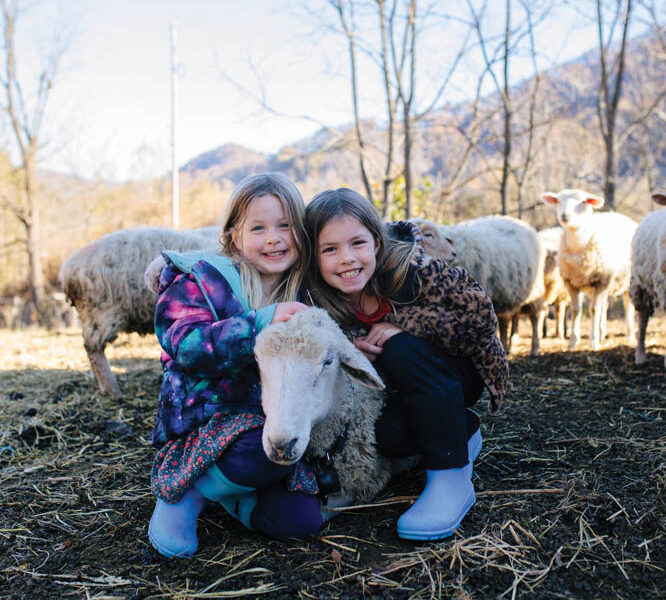
Every night, Sharon and Seth Dubuc count sheep — 140, to be exact. The mental exercise isn’t a way of remedying insomnia but rather a means of shepherding Black Thorn Farm, the couple’s 43-acre parcel in the rural Buncombe County community of Big Sandy Mush.
“When we got here in 2008, the land was neglected and pretty trashed,” says Sharon, who previously worked as a private chef. Her husband also worked in kitchens. “We planted tons of trees and bushes, got our first sheep, and very slowly started sculpting the pastures and bringing them back to life. The sheep have been an integral part of that since the beginning.”

Earlier in the fall, fleece from their flock was woven into stunning coverlets as part of the Blue Ridge Blankets Project, an initiative that aims to connect regional fiber farmers and artists with the goal of crafting coverlets.
The endeavor is being spearheaded by Local Cloth, an Asheville-based nonprofit that works to support the regional fiber economy. According to co-founder Judi Jetson, inspiration for the project came in 2021, when the organization moved from cramped quarters on Coxe Avenue to a larger, more community-oriented space in the River Arts District.
“It was time for Local Cloth to ‘grow into our name,’” says Jetson. “In other words, someone should be able to walk into our studio and buy cloth that was woven locally from fiber from animals raised in our region.”

With this goal in mind, Jetson secured a grant from The Community Foundation of Western North Carolina and used the seed money to begin collecting wool, mohair, and alpaca fleece from more than a dozen farms in the area. The fiber was then washed, carded, spun, and dyed. Finally, students enrolled in Haywood Community College’s Professional Crafts Program and the Fiber Arts Crew at Warren Wilson College wove the yarn into 19 sample designs.
In 2022, the community was invited to vote on their preferred designs. More than 3,000 people cast their ballots, settling on five favorites: the French Broad River, an indigo-dyed design accented by white stripes; the Pisgah, a classic twill dyed with walnut; the Black Mountain, a multi-colored plaid design; the Barnardsville, an undyed twill; and the Asheville, which features hand-dyed stripes of indigo, madder root, weld, and walnut.
Earlier this year, local weavers began producing limited runs of each design. In October, 74 coverlets went up for sale and have been in high demand ever since.
“There is a ‘wow’ factor when you touch and hold these blankets,” Jetson confirms. “They feel honest and real.”
Jetson hopes to make the project an ongoing endeavor, with the proceeds from each year supporting the purchase of fiber for the following year. Though the income generated may be relatively small, farmers like the Dubucs are appreciative of Local Cloth’s efforts to keep the fiber tradition alive.
“The project is important because it establishes hope that we can develop a dynamic fibershed that brings beauty to the community, justly compensates the work of craftspeople, and gives more worth to local shepherds’ fiber,” says Sharon. “It’s been an absolute honor to be part of.”
Blankets produced through the Blue Ridge Blankets Project are available to purchase in person at Local Cloth (408 Depot St., Suite 100, River Arts District, Asheville) and Grovewood Gallery (111 Grovewood Road, Asheville, grovewood.com). Blankets can also be purchased online at localcloth.org.
